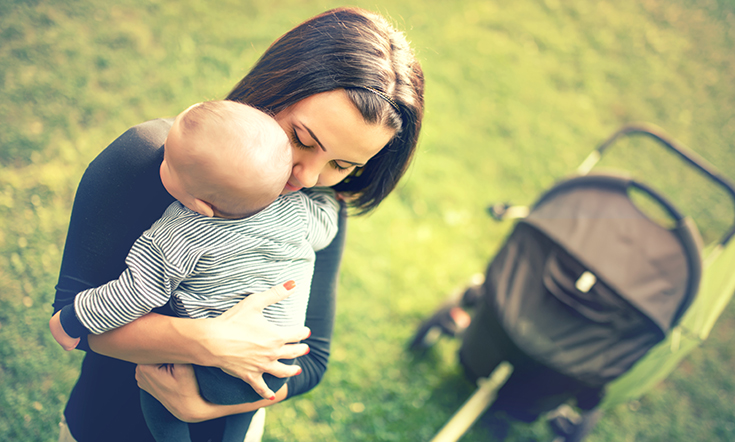

Having a new baby is an amazing and life-changing experience. While there are many emotional highs, such as meeting your baby for the first time, that first smile or giggle, there are also emotional lows. Sometimes there are more lows than highs, but when the lows continue for more than a couple of weeks it is worth visiting your doctor to talk about post-natal depression.
Unfortunately, the parenting books don’t tell you how to look after your baby while you’re suffering with post-natal depression and it is possible to feel that you are navigating the world of dirty nappies, sleepless nights and relentless work in a dark tunnel. There are some things you can do to try and manage this hard time, while you work with your doctor on getting well.
Seek Help
The first and most important thing you can do is seek help. If your low mood continues for longer than a couple of weeks you should make an appointment with your doctor. Your doctor will be able to access the necessary support networks to help get you back on track. It is also important that you seek support from your partner, friends and extended family. Trying to battle through on your own will not speed up your recovery, it may delay it or make your depression worse.
Curate a Loose Routine
It is widely known that babies and toddlers love routines, but so to do adults. And while your baby’s sleeping and feeding patterns may be unpredictable, outlining a loose routine may help you feel less out of control. Rather than being ruled by the clock, use the rythym of the day to inform your routine. For example, after the mid-morning feed, have a coffee and a snack while your baby kicks on the floor. After lunch put on a load of washing, or go for a walk. Maintaining some routine will give you a reason to get out of bed and try and get on with the day.
Try to Get Out of the House
At least once a day, go outside for some fresh air. If loading your baby into the car and driving somewhere seems too much, opt for a walk to you local park, or even up and down your street. You can put your baby in the pram, or even carry them in your arms. You can’t underestimate the value of fresh air and a bit of sunshine. While it won’t cure you, staying inside all day may make you feel worse.
Regular Skin to Skin Time
The emotional connection between mother and baby can sometimes be disrupted if the mother is suffering from postnatal depression. Having regular skin contact with the baby will help form a connection for both mother and baby. This connection will continue long after the mother has recovered from her post-natal depression.
Just Do The Basics
Everything can seem hard with post-natal depression. New mothers are often overwhelmed with everything that needs to be done. This overwhelm is made worse by depression. Focus on looking after you and your baby only. The other jobs are peripheral. The washing will get done, the floors will get washed, the world won’t stop if you fall behind on the housework.
Take Note of The Things That Make You Feel Better
If going out for a breath of fresh air helps you feel better, try to do it every day. If taking a nap during the day helps, work things out so you can lie down when your baby does. If eating a healthy meal helps, reach out and ask someone to bring you some good, nourishing food. Do whatever works to help you feel better in the short term, and the long term.
For more information visit these Web sites
PANDA Post and antenatal depression association
Pregnancy Birth & Baby or Need to talk?
Call 1800 882 436
Pregnancy, Birth and Baby Helpline. It’s a free call with qualified counsellors trained in pregnancy, birth and children.























